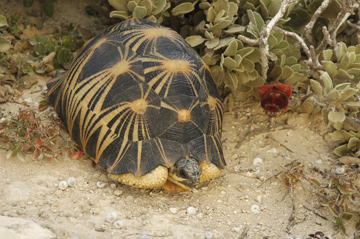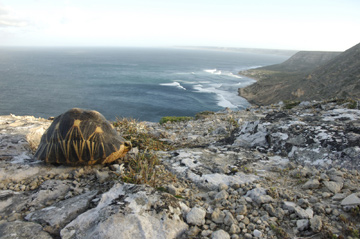Madagascar’s endemic turtles and tortoises are threatened by the pet trade, poaching for food, and habitat destruction, but their conservation offers opportunities for community-based ecotourism.
Madagascar’s rare and unique turtles and tortoises face high risk of extinction in the wild if conservation measures are not rapidly put into place, warned a group of scientists meeting to discuss the fate of Madagascar’s most threatened repitles.
Gathering in Madagascar’s capital city of Antananarivo, researchers from the Wildlife Conservation Society and other groups said that habitat destruction, illegal hunting, and the wildlife trade for the international pet market are the biggest threats to Madagascar’s turtles and tortoises. Five of the nine species assessed by IUCN have been downgraded to critically endangered, including the ploughshare tortoise, radiated tortoise, flat-tailed tortoise, spider tortoise and Madagascar big-headed turtle.

|
“Madagascar’s ancient tortoises and turtles are marching toward extinction unless an all-out effort is made to protect these living national treasures,” said Dr. James Deutsch, director for the Wildlife Conservation Society’s Africa programs. “The good news is that there’s still time to save Madagascar’s tortoises and turtles from extinction, and we know how to tackle the issues.”
The committee recommended the formation of a “tortoise brigade” to monitor and control illegal trade. Confiscated tortoises would be returned to the wild in areas where populations had been overexploited. The researchers said that with proper law enforcement and protection, the restoration of turtles and tortoises could boost ecotourism, providing income for local people.
